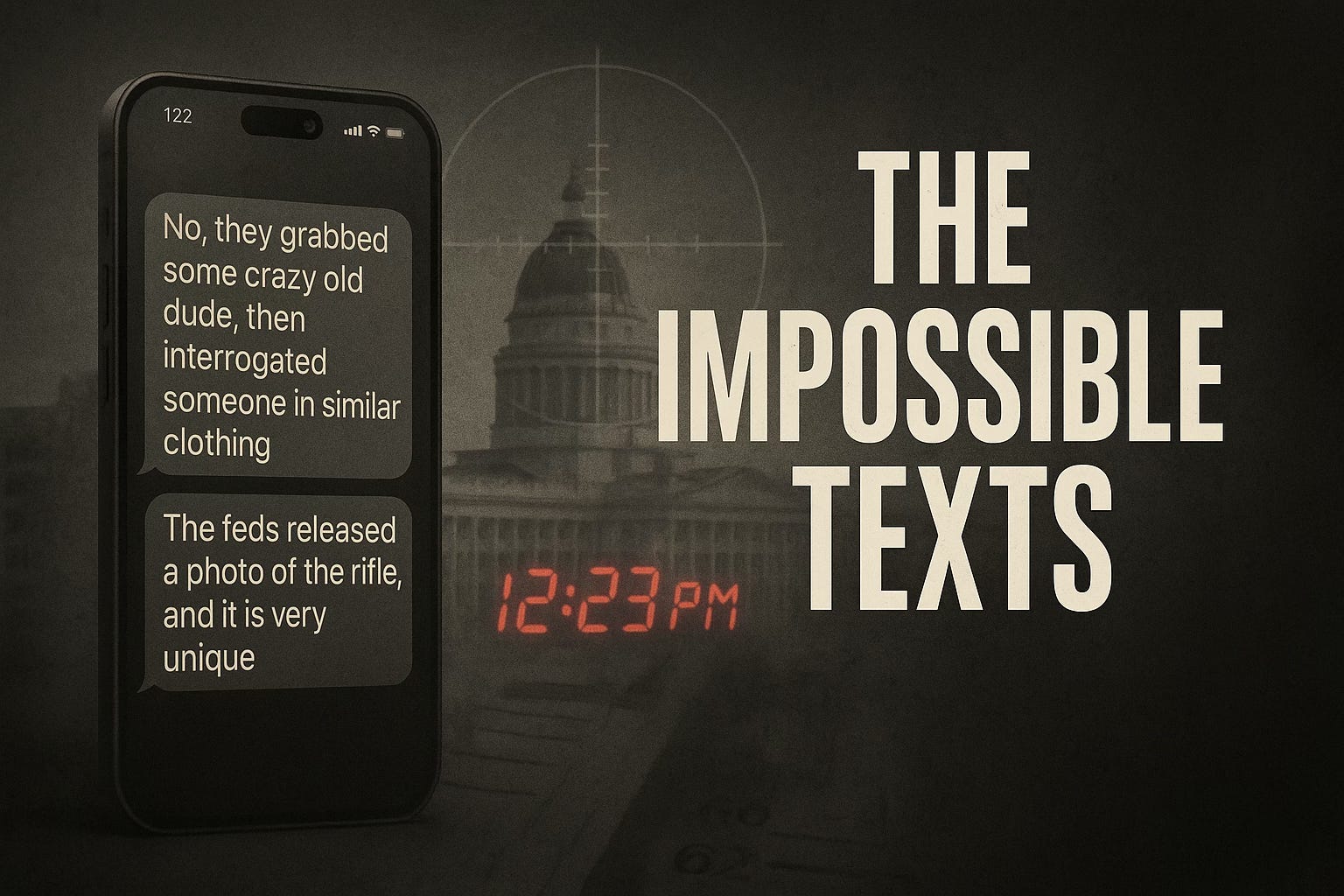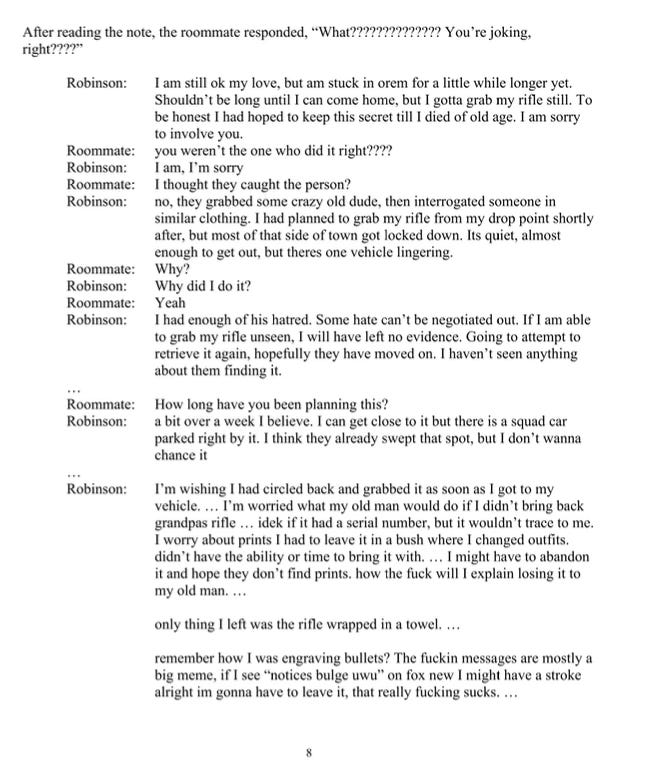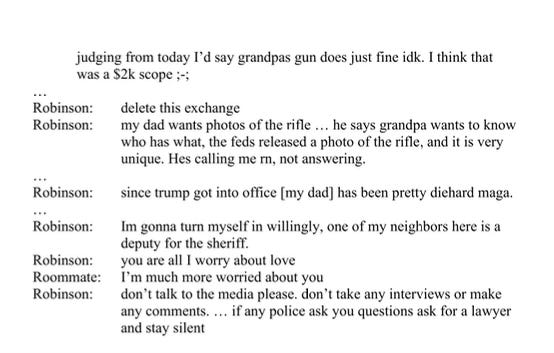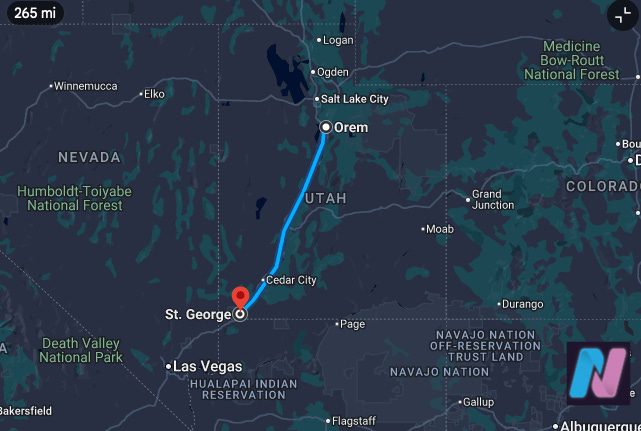A Rush to Judgment in Charlie Kirk's Murder
How impossible timelines and missing evidence didn't stop a death penalty case—or the president's misguided assault on his political opponents.
On September 10, 2025, at 12:23 PM, Tyler Robinson allegedly fired a fatal shot from a rooftop at Utah Valley University, killing conservative activist Charlie Kirk from 200 yards away. Within minutes, Robinson was allegedly texting his transgender boyfriend about police activities in remarkable detail. Federal investigators found zero connections to left-wing organizations. Yet the entire prosecution—seeking the death penalty—rests on text messages that describe events before they happened, provided by a single cooperating witness.
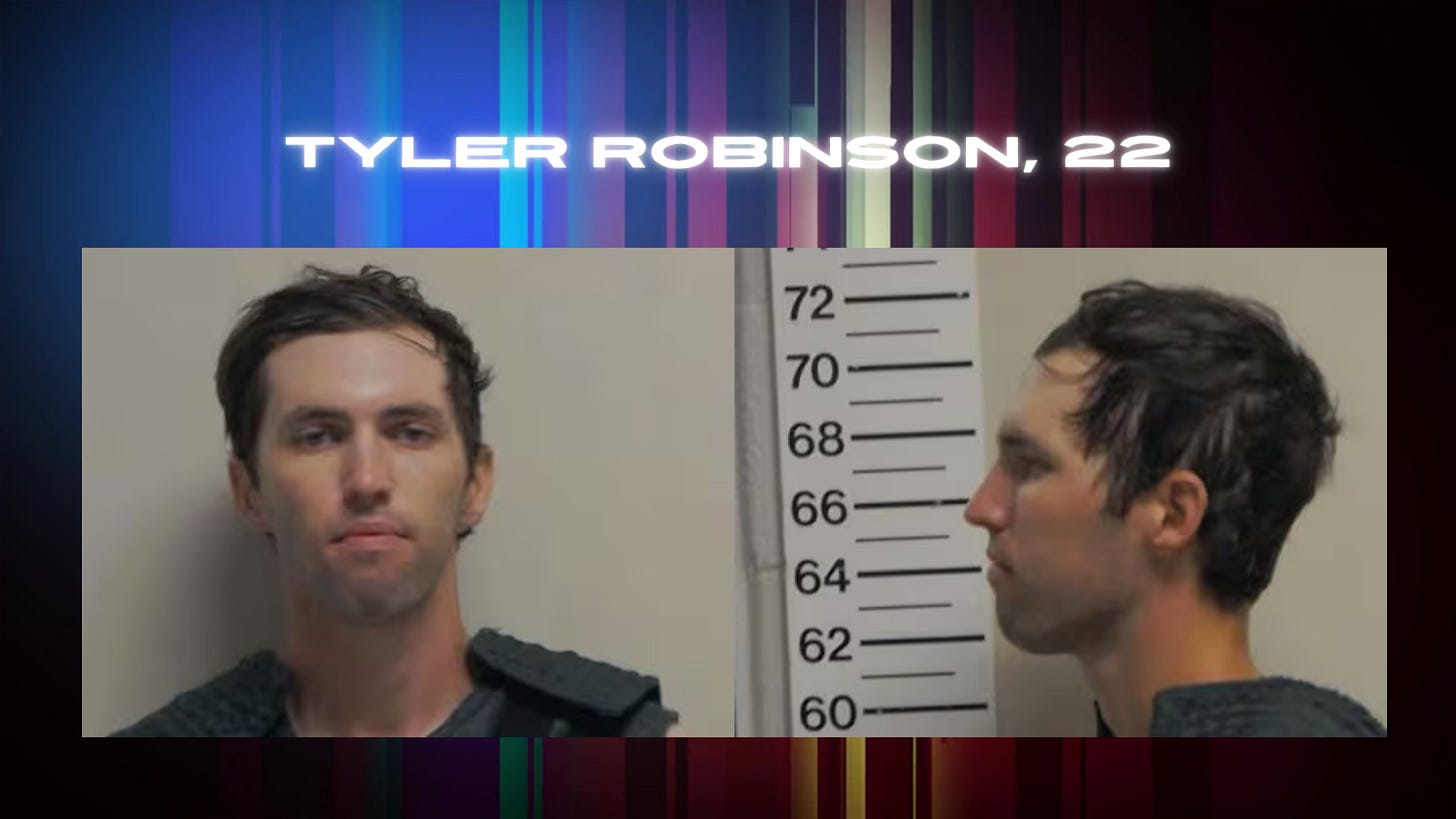
The Timeline That Cannot Work
The official charging documents tell a simple story: Robinson shot Kirk at 12:23 PM in Orem, Utah, then fled while exchanging text messages with his boyfriend Lance Twiggs. But here's what prosecutors conspicuously omit from their filing—any timestamps whatsoever for these crucial text messages.
This isn't a minor oversight. In a capital murder case where timing determines everything, prosecutors have created a temporal black hole around their most important evidence. The messages themselves, however, reveal why timestamps might prove inconvenient.
Robinson's texts demonstrate knowledge of specific police activities with impossible precision. He wrote: "No, they grabbed some crazy old dude, then interrogated someone in similar clothing." Court documents confirm this refers to George Zinn, a 71-year-old man who falsely confessed to the shooting. But when did Zinn's arrest occur? Official alerts show a person "in custody" around 12:50 PM—yet Robinson supposedly described this while fleeing the scene moments after 12:23 PM.
Even more troubling, Robinson texted: "The feds released a photo of the rifle, and it is very unique." But FBI communications show no rifle photos were released in the immediate aftermath. When photos did emerge hours later through various channels, how did Robinson reference them in messages allegedly sent while escaping?
The Geographic Impossibility
The physical timeline presents another contradiction prosecutors haven't addressed. Robinson lived in St. George, Utah—266 miles from the shooting location in Orem. This drive requires a minimum of 3 hours and 42 minutes under ideal conditions.
Yet Robinson's messages claim contradictory locations. He writes he's "stuck in Orem for a little while longer" and trying to "grab my rifle still." Later he describes specific police positions: "There is a squad car parked right by it. I think they already swept that spot."
These observations require either physical presence or real-time surveillance. If Robinson was observing police in Orem as his messages suggest, he wasn't fleeing. If he was racing home to St. George, he couldn't have seen squad car positions or sweep patterns. If the messages weren't sent until he arrived home hours later, how did he possess tactical knowledge of ongoing operations 266 miles away?
What Federal Investigators Actually Found
While prosecutors built their case on these problematic text messages, federal investigators were discovering what wasn't there—any connection to organized groups of any kind.
NBC News confirmed through three separate federal sources that investigators found "no evidence connecting the suspect with any left-wing groups." This wasn't for lack of trying. In the heated aftermath, with President Trump immediately blaming "radical leftists" and political pressure mounting, federal agents conducted extensive searches for organizational ties. They found none.
Robinson's actual profile contradicts every political narrative being pushed. He registered to vote as politically unaffiliated, not as a Democrat. Both his parents are registered Republicans. His father, whom Robinson described in texts as "pretty diehard MAGA," ultimately turned him in after recognizing him in FBI photos. The pre-written confession Robinson left contained no political manifesto. The bullet inscriptions that initially seemed political turned out to be gaming memes—"Hey Fascist! Catch!" comes from the video game Helldivers 2.
Without the text messages, there's no ideological component to the crime at all. There’s a more plausible evidence-backed narrative to suggest that video games are creating lone gunmen than to link Robinson to left organizations.
The Convenient Witness
Everything ideological about this case flows from a single source: Lance Twiggs, Robinson's transgender boyfriend and roommate. Twiggs found Robinson's confession note reading "I had the opportunity to take out Charlie Kirk and I'm going to take it." Twiggs provided all the text messages to police. Twiggs immediately cooperated with authorities and faces no charges despite allegedly being asked to destroy evidence.
These texts conveniently provide what investigators couldn't find anywhere else: clear motive ("I had enough of his hatred"), political angle ("Some hate can't be negotiated out"), and detailed confession. They also position a transgender person at the narrative's center—precisely what certain political actors needed for their predetermined story.
Paid subscribers can continue reading below for the full investigation. We've set our annual subscription at 50% off—our lowest price ever—because we believe as many people as possible need access to this reporting right now. Lock in this rate and keep it as long as you subscribe.



